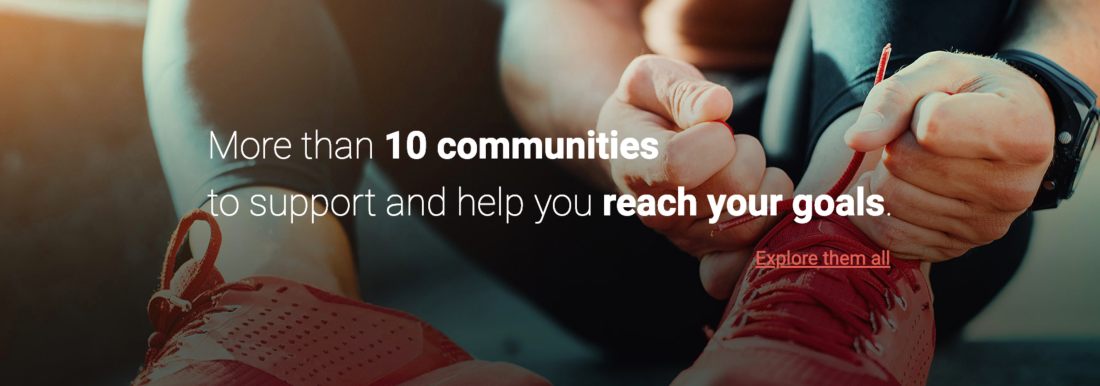
It’s now February, and if you’re like most people, you’ve probably given up on your New Year’s resolutions, whether you had planned to spend less and save more, exercise regularly, lose weight or take steps to earn a promotion. In fact, these goals probably fell by the wayside weeks ago, or around January 17 according to a recent examination of data by one social network for athletes.
But here’s some good news: you don’t have to wait until December 31 to try again. stickK, a community-driven online commitment-setting platform, can help you achieve your goals –New Year’s and otherwise– by empowering behavioral change.
RewardExpert recently spoke to Jerry Brown, product manager at stickK, about the inspiration behind the platform and how it uses loss aversion and accountability to help members stick to their commitments.

Product Manager at stickK
Commitments that Stick
stickK was founded in 2007 by Dean Karlan, Ian Ayres and Jordan Goldberg, two of whom were professors at Yale University.
“One of the professors found himself a little overweight,” Brown explained. “Another professor he was working with also wanted to lose a few pounds, so the two decided to team up and hold each other accountable to losing one pound a week for a couple of months.”
It was a smart plan, but it didn’t work. Something was missing.
“They were such good friends, they were able to renegotiate the details of their contract with each other,” Brown continued. “After a couple of months, they weighed the same as when they started. They realized they needed to figure out a system where renegotiation would be impossible. Once they had that limiting contract in place, they were successful.”
Brown said that the limiting contract the professors created evolved into the Commitment Contract structure used on the stickK platform when it officially launched in 2008.
Combined with social accountability and the possibility of financial penalty, more than 437,000 Commitment Contracts have been created by users determined to reach their education, career, health, fitness, weight loss and lifestyle goals.
Four Steps to Success
Using stickK to help you achieve your goals is completely free and easy to do. Brown said that the first step is to determine your goal. It’s important to keep that goal actionable and specific. “For example, you might say that you want to lose five pounds before the end of the month,” he explained.

Next, you’ll need to set up your Commitment Contract. This involves describing your goal and its parameters as well as setting milestones where you’ll check in with the platform and generate a report. “If you want to lose five pounds by the end of the month, you might break that down into one pound a week for five weeks and check in every week,” Brown continued.
The accountability step comes next. Users can choose a Referee to hold them accountable for each milestone. “If your goal is to lose five pounds, it would make sense to choose someone who can observe you weighing in on a scale, like a significant other or a sibling,” Brown said.
Each time you submit a report on your progress to stickK, the system will confirm it with the Referee. The company’s data show that adding a Referee to your Commitment Contract can double your chances of success.

Finally, it’s time to attach a financial Stake to your Commitment Contract. “Maybe you’d rather lose five pounds than lose $100,” Brown explained. “That’s the Stake you would set on your Commitment Contract to incentivize yourself to achieve your goal. Users who set Stakes are three times more likely to be successful than users who don’t use this feature.”
Brown noted that stickK does not want anyone to lose money on the platform but if they do fail to achieve their goal they can at least designate where those forfeited funds are distributed. “They can give the money to a friend or someone else they know personally,” he explained. “Or they can donate it to a charity or to stickK to help us keep the lights on.”
However, Brown said that the most popular option is to designate an anti-charity as the recipient of the Stake. “It adds an additional layer of incentive to the Commitment Contract,” he added. “If you lose the money and it goes to something you hate, that’s going to make you think twice about not going to the gym.”
Supporting Other Members
You can set any type of a goal on stickK, from commitments related to advancing your career, saving more, spending less and investing regularly to exercise, weight loss, family and relationships or hobbies and recreation. The platform has a community for every category where members can support each other in their goals.
The Weight Loss community has 79,000 members and Exercise and Fitness has 65,000. Money and Finance has 13,000.

“Health and wellness commitments are definitely the most popular,” Brown said. “We also see a lot of career-focused commitments. Things like people learning to code, educating themselves in their off hours and things of that nature. Really, when it comes to who should use stickK, it’s anyone who wants to improve themselves and who is committed to doing so.”
Commitments for Businesses
While stickK is obviously useful for individuals, the company also offers tailored corporate solutions to businesses that want to use behavioral economics to help their employees.
“Most commonly, corporations are using stickK as part of a health and wellness program or initiative where they want to incentivize their employees to maybe spend some time away from the computer and more time outside, or follow a certain diet, or participate in a company-wide competition or activity,” Brown explained.

He said that stickK works closely with its enterprise clients to identify their objectives before creating a custom program using behavioral science-backed features and tools.
“If they want their employees to start exercising more, we would work closely with them to identify what it is that would incentivize their employees to commitment to that, what the commitment would look like and how it would be structured,” Brown continued. “It’s all really just a matter of what the employer or organization wants to accomplish.”
New Developments
Brown said that stickK has a lot of new developments planned for 2019. The first to launch will be a campaign tool that will allow users to set up a series of commitments, generate an activation code, and then distribute that code to whoever they want to commit to their campaign.
“For example, let’s say I want my book club to commit to reading the materials before we meet,” Brown explained. “I could use the campaign tool to structure a campaign and distribute the activation code to my book club. Then everyone in the book club can access the campaign on the website or app and commit to these specific goals.”
Brown added that the campaign tool will include administrator dashboard access with data analytics and user list management.
“We’re very excited about it,” he said. “This tool should be launching in the next few weeks and we’re hoping to see a lot of campaigns started and objectives reached.”
